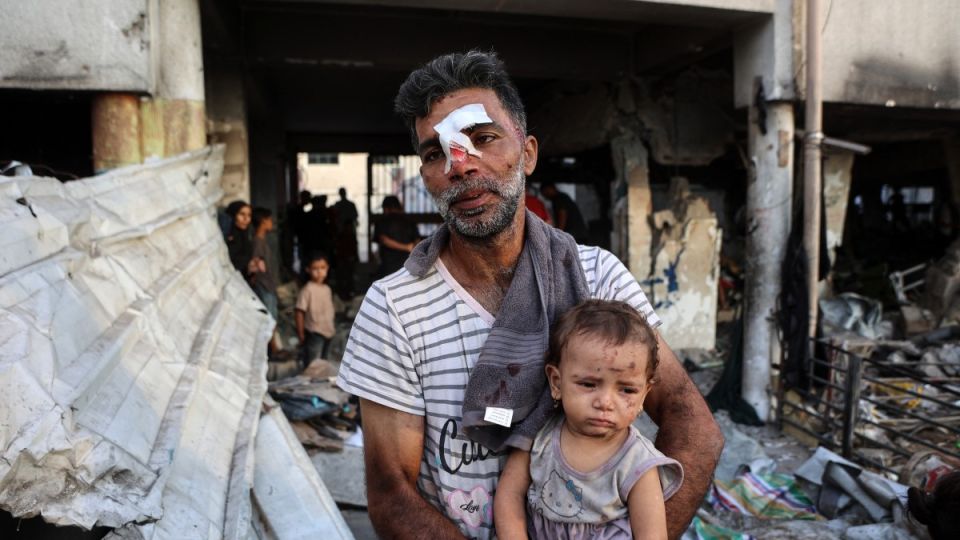September 9, 2025
ISLAMABAD – At least 1,300 actors, directors and other members of the film industry, including big names such as Mark Ruffalo, Javier Bardem and Olivia Colman, have pledged to not work with Israeli film institutions implicated in the genocide and apartheid against the Palestinian people.
The list who have signed the Film Workers for Palestine pledge is extensive, but some of the other prominent names on it are Broad City’s Ilana Glazer, Bride and Prejudice’s Indira Varma, Scott Pilgrim vs the World’s Mary Elizabeth Winstead, the new Harry Potter show’s Paapa Essiedu, The White Lotus’ Aimee Lou Wood, One Day’s Ambika Mod, Charmed’s Alyssa Milano, The Bear’s Ayo Edebiri, Bassem Yousef, Doctor Strange’s Benedict Wong, Scream’s Melissa Barrera, Susan Sarandon, Succession’s Brian Cox, Joe Alwyn, Harry Potter’s Miriam Margolyes, Doctor Strange’s Tilda Swinton, filmmaker Ava DuVernay, The Hunger Games’ Jena Malone, The Marvels’ Zawe Ashton, and Sex and the City’s Cynthia Nixon.
A statement issued by the Film Workers for Palestine group reads, “As filmmakers, actors, film industry workers, and institutions, we recognise the power of cinema to shape perceptions. In this urgent moment of crisis, where many of our governments are enabling the carnage in Gaza, we must do everything we can to address complicity in that unrelenting horror.”
It highlighted the ICJ’s ruling that there is “a plausible risk of genocide in Gaza, and that Israel’s occupation and apartheid against Palestinians are unlawful”. “Standing for equality, justice, and freedom for all people is a profound moral duty that none of us can ignore. So too, we must speak out now against the harm done to the Palestinian people,” it read.
“We answer the call of Palestinian filmmakers, who have urged the international film industry to refuse silence, racism, and dehumanisation, as well as to ‘do everything humanly possible’ to end complicity in their oppression.
“Inspired by Filmmakers United Against Apartheid who refused to screen their films in apartheid South Africa, we pledge not to screen films, appear at or otherwise work with Israeli film institutions — including festivals, cinemas, broadcasters and production companies — that are implicated in genocide and apartheid against the Palestinian people.”
The statement explained that examples of complicity include whitewashing or justifying genocide and apartheid, and/or partnering with the government committing them. It also highlighted Israel’s major film festivals — including but not limited to Jerusalem Film Festival, Haifa International Film Festival, Docaviv and TLVfest — that continue to partner with the Israeli government while it carries out what leading experts have defined as genocide against Palestinians in Gaza.
The pledge does not, however, bar people from working with Israelis, only Israeli institutions. “This refusal takes aim at institutional complicity, not identity. There are also two million Palestinians with Israeli citizenship, and Palestinian civil society has developed context sensitive guidelines for that community.”
The pledge follows several other cultural boycotts of Israel and Israeli institutions. Over 300 British and Irish writers penned an open letter denouncing the genocide in Gaza in May. The UK’s Royal Ballet and Opera cancelled a scheduled 2026 production run at the Israeli Opera in Tel Aviv after 182 members signed an open letter criticising the organisation’s stance on Gaza.


